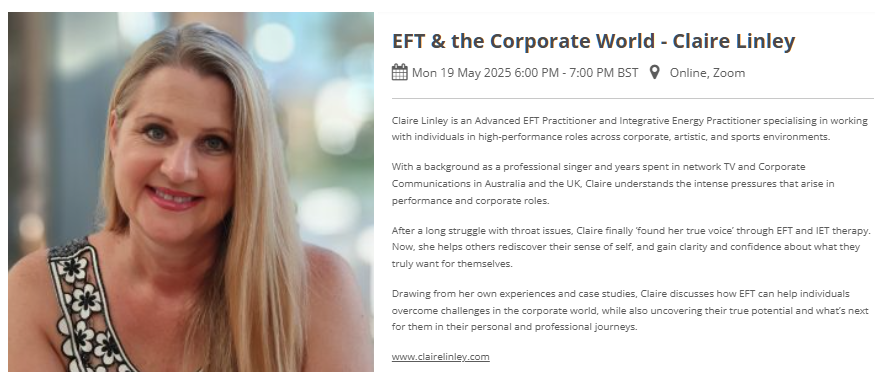As an entrepreneur, you know the road ahead will not be smooth. You anticipate uncertainty, brace for challenges, and yet you go for it anyway. Sometimes you are prepared, sometimes you are winging it. Sometimes it works, sometimes it flops.
But through all of this, what happens to you? As you push forward, navigate obstacles, and pour yourself into something bigger than you are, are you paying attention to the foundation you are building on, the one within yourself?
There is no perfect plan, no magic formula. Even the most successful founder did not have a blueprint to build on. But you do need to start as you mean to go on by managing your own well-being because this will ultimately dictate the health of your business. Ignoring fear, worry, and stress, and overriding your physical health, is like building a skyscraper on a shaky foundation.
The Silent Cost of Hustle Culture
Too many founders wear exhaustion like a badge of honour. Hustle culture has glorified long hours, sleepless nights, and sacrificing everything in the name of success. However, the nervous system does not function on ambition alone. Chronic stress rewires the brain to be in a constant state of fight or flight, making clear thinking, creativity, and sound decision-making increasingly difficult.
As a therapist, a tech startup founder I worked with, pushed through endless sleepless nights, skipping meals and social interactions to scale his business. It worked for a while. Then came the panic attacks, the brain fog, and the crushing exhaustion. His company stalled, and he had to step back for months to recover. Another client of mine built her startup with a non-negotiable self-care routine. She scheduled bi-weekly therapy sessions, took regular breaks, and delegated effectively. Her business scaled steadily, and she remained present, engaged, and clear-headed.
Founders of successful enterprises are not the ones who have it all figured out, but they are the ones willing to listen, learn, and adapt. They take care of themselves and the people around them first, and then make their business moves.
Emotional Intelligence and the Founder’s Journey
When you are building a business from the ground up, it reflects you personally and will grow as much as you do. Self-care is not just about bubble baths and yoga. It is about developing emotional intelligence, sharpening instincts, and trusting your own judgment. Founders who take time to reflect, refine their decision-making process, and regulate their emotions make sharper, more confident choices.
Entrepreneurship is an emotional rollercoaster. One moment you are celebrating a huge win, and the next, you are dealing with an unexpected setback. How you navigate these fluctuations determines your resilience. EFT (Emotional Freedom Techniques), also known as tapping, is a powerful tool for processing emotional stress. By addressing limiting beliefs, fear of failure, and past emotional wounds, EFT can help founders create a mental environment that supports sustainable success.
Similarly, NLP (Neuro-Linguistic Programming) and Hypnotherapy allow founders to reframe their mindset, shifting from fear-based thinking to a solutions-focused perspective. When stress hits, instead of spiralling into self-doubt, these techniques can help you develop empowering beliefs and break free from negative thought loops.
The Warning Signs of Burnout
The warning signs of burnout are easy to ignore at first. You wake up already feeling exhausted. Every minor setback feels like a crisis. You are irritable or disconnected from your team. You cannot switch off even when you try. Your physical health declines – poor sleep, headaches, stress weight gain or loss.
If you are experiencing these, it is time to prioritise your well-being before your business suffers the consequences. Burnout is not a failure of discipline or a lack of passion. It is your nervous system screaming for regulation. Regular practices such as mindfulness, breathing techniques, guided meditation, and EFT, NLP and Hypnotherapy can help reduce cortisol levels and bring you back to a state of balance.
Building a Founder’s Self-Care Toolkit
Business growth is mostly about you and who you become along the way. The commitment it takes to create something bigger than yourself is proportionate to your own development. Building your own skyscraper of a business is about basing your strategy and decisions on the trust you have developed in yourself and your own innate knowing. From this kind of secure foundation, you can confront self-doubt, overcome obstacles, and build a big vision with confidence.
Most founders resist setting boundaries, convinced that every minute spent away from the business is a missed opportunity. But without clear work hours and time to reset, burnout is inevitable. Regulating your nervous system can prevent stress overload and help you think more clearly. Delegating and automating will allow you to focus on what truly moves the business forward rather than getting caught up in the day-to-day grind. Finding a support system, whether through founder communities, groups or professional coaching, can provide perspective, accountability, and much-needed encouragement.
Many founders wear every hat in their business. They end up doing everything except being present in their own lives. The biggest mistake is waiting too long to get help. Building a strong team is important, but so is having a personal support network that understands the highs and lows of entrepreneurship. Letting go of the idea that you have to figure it all out yourself is one of the smartest moves you can make.
Alignment: The Ultimate Competitive Edge
One of the biggest growth areas for founders and corporate leaders today is incorporating energy psychology techniques (EFT / NLP / Hypnotherapy) that create real, practical shifts. Mental and emotional health is not a nice-to-have any more, it is essential. The right support is not just about productivity, it is about alignment. And when you are aligned, everything changes, from how you make decisions and how you lead, to how you live.
So, the real question is: are you building on shaky foundations? Or are you willing to invest in the inner work that makes success sustainable for both you and your business?
Claire Linley brings vital insights into the often-overlooked topic of mental health for entrepreneurs. As an accredited therapist with deep experience in the startup world, Claire advocates for a more holistic approach, urging accelerators and coaching programs to prioritize founders’ well-being alongside business growth. Her work serves as a timely reminder that the success of a startup is not just about financials or scaling but about ensuring the mental health of those leading the charge.
www.clairelinley.com





